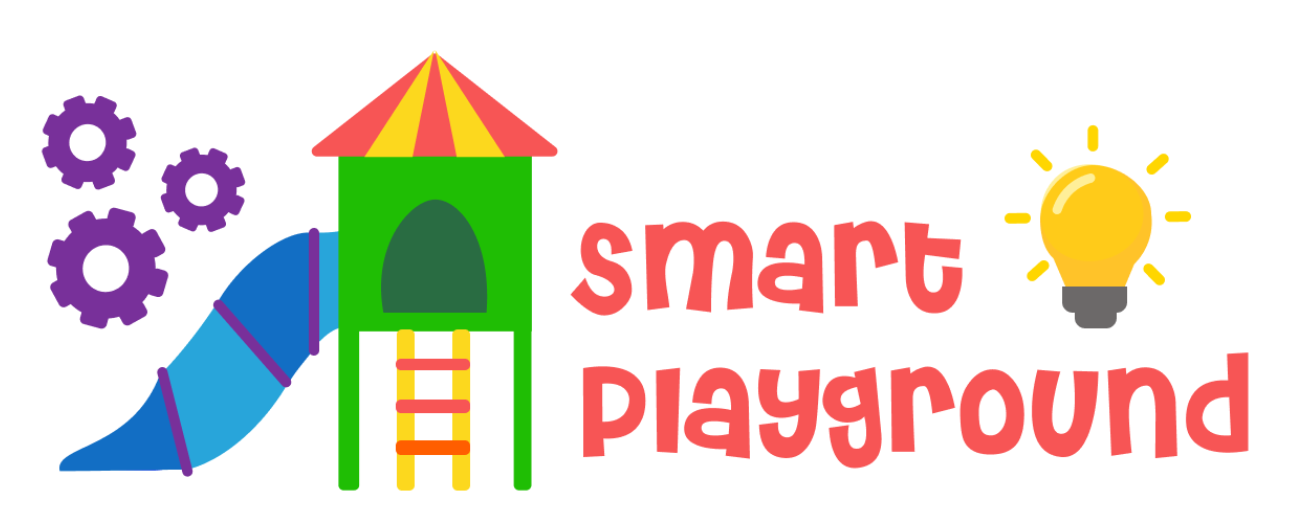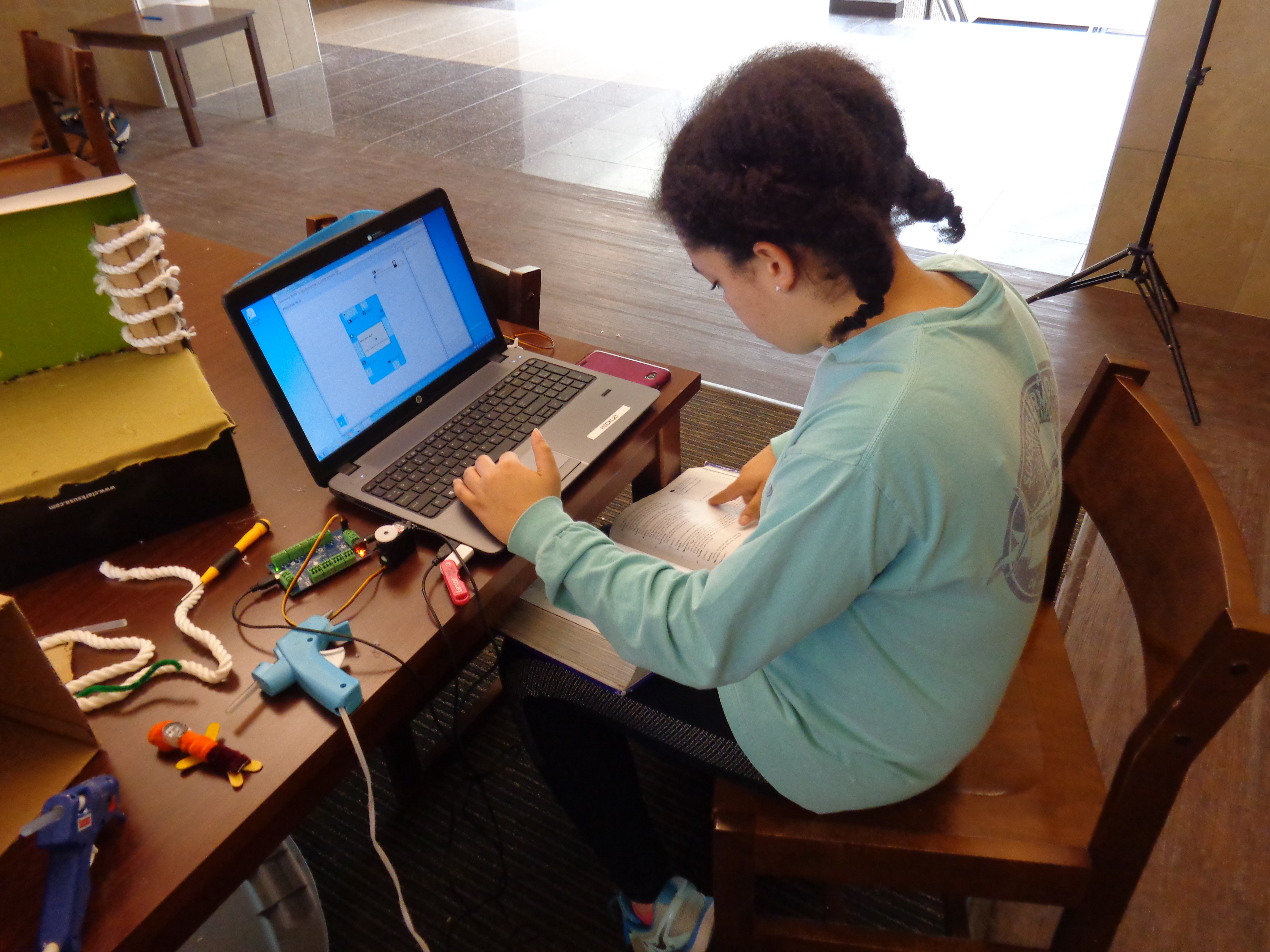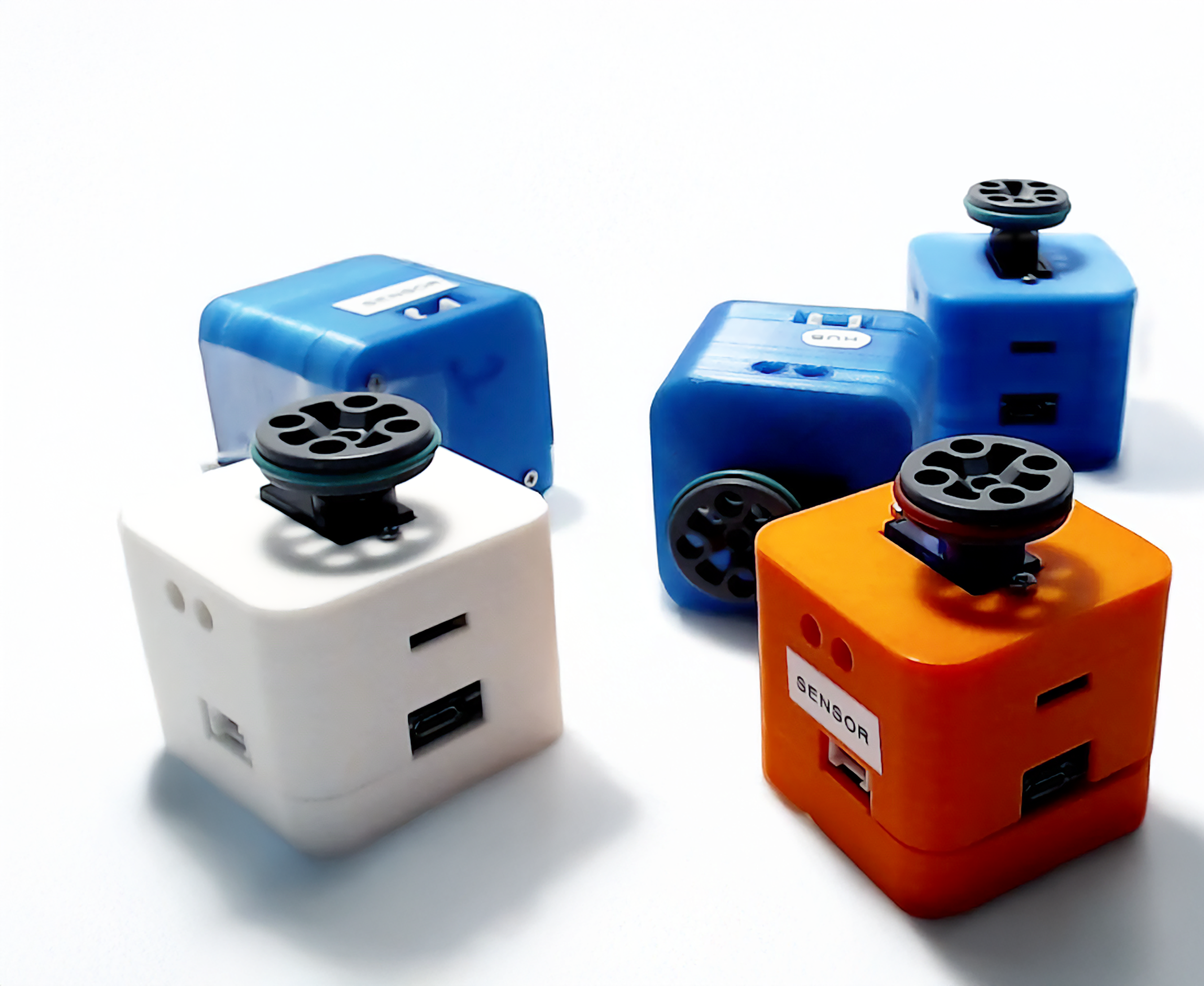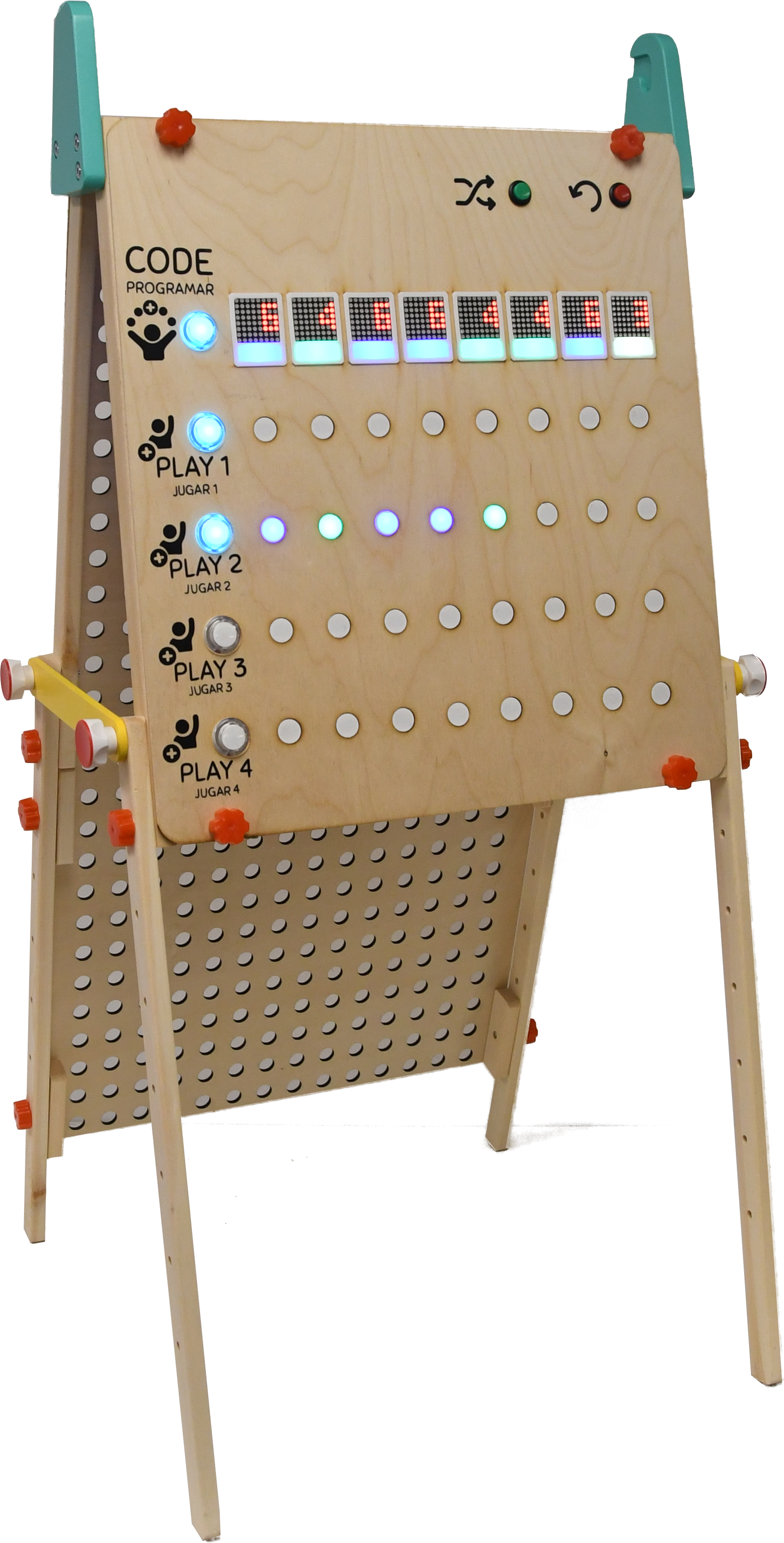The Smart Playground: Computational Thinking through Robotics in Early Childhood
Back to Projects

Project Overview
On Smart Playground project, our team is reimagining the playground as a programmable robotic system that kindergarten children can control through play-based interactions. Unlike traditional approaches to teaching computational thinking that rely on screen-based activities, this project translates programming concepts into tangible, physical experiences on school playgrounds where children engage in exploratory learning.
Design Approach
The development team, at Tufts University, is rapidly prototyping, iteratively testing, and responding to feedback from participatory design sessions with kindergarten students, teachers, and families in Santa Ana. I coordinate and advise our team’s efforts on the following aspects of the design process:
- Designing and implementing interface prototypes based on co-design feedback from our UCI partners
- Refining usability testing methodologies for kindergarten-aged users
- Evaluating interface designs for developmental appropriateness
- Developing interaction models that can be implemented across various playground settings
My Contribution
As Co-Investigator supporting technical development and leading interaction design efforts, my primary responsibilities include:

Interface & Interaction Design - I design and develop embedded devices that enable the control of tangible programming interfaces appropriate for kindergarten users.
- Transforming feedback from co-design partners into actionable design specifications
- Enhancing the knowledge exchange between our technical team and education researchers
Interdisciplinary Integration - I help bridge gaps between computational thinking concepts, early childhood development, and physical play by:
- Identifying opportunities to embed computational thinking into play activities and kindergarten educational objectives
- Translating playground activities and actions into computational thinking concepts (sequences, patterns, loops, and conditionals)
- Developing scaffolded learning experiences that progress from simple to more advanced
Project Gallery
More Projects

Arts & Bots
An inclusive educational robotics program that integrates creative technology into non-technical middle school classes to identify and cultivate diverse STEM talent.

Smart Motors: Integrating AI in Upper Elementary Education
Exploring approaches to teaching machine learning concepts through robotics with elementary teachers and students.

